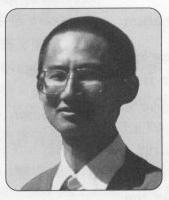《華嚴經》是經王之王,在中國向來受到最高的推崇與讚嘆。華嚴的意思就是以妙潔的蓮華來莊嚴法界;由菩薩大行清淨的蓮華,成就法界一切眾生安住於佛道的因緣,來使他們的身心淨化,從而共同成就那無上莊嚴的佛果。其中第十二品賢首品是本經中極為重要的一品。展示了菩薩修道的完整次第。關於菩薩發心,有一段是這樣寫的:「不求五欲及王位,富饒自樂大名稱。但為永滅眾生苦,利益世間而發心。」
這是由悲心而入道的菩薩的發心。菩薩道處處談利益一切有情,悲心增上的菩薩,其行願與所緣境界都非常地深刻廣大。在這一點上,如果我們狹義地觀,從依四念處這一聲聞道的中心法門來看待聲聞道,就會感到兩者的差別。今天我們想就學生的德育談一談,要利益眾生,為什麼所緣境界太狹窄不行?
有的家長一心希望兒女功課好。除了成績,其他甚麼都不管。對孩子的思想、感情、意志的整體平衡毫無興趣去關心、把握。企圖以單一指標的追求,來完成家庭的教育。走極端者,甚至連晚餐的豐盛與否,都依孩子考試成績決定。家長對孩子的身心過程的瞭解既被自身的偏見所蒙蔽,當孩子在學習上的壓力增大,不能滿足父母的期望時,雙方有效進行溝通的管道也就不能存。問題越積越多,代溝自然形成,父母也「失去」了孩子。對一個家庭而言,這個代價是極為沉重的,其影響也是非常深遠的。
有些家長看得較遠,確實有心全面地瞭解子女的身心狀況,每天都拿出不少時間,不厭其煩地靜靜傾聽子女絮絮訴說學校的事:「某某某和某某某又吵架了。……老師今天批評某某某了。某某某的爸爸媽媽離婚了,他爸爸說他媽媽是壞人,這是真的嗎?」這時家長除了加以指導,應機實行教行之外,並由此得以將子女的思想、感情與其生活背景完整地勾書出-張藍圖。由於他們的愛心落在了實處,投入了足夠的時間來理解體會孩子的一切,對每一「事件」的意義,就都可能「按圖索驥」,而有真正地瞭解,並由此通情達理地處理子女的問題。
下面再從老師角度談一談,為什麼僅對少數眾生慈悲是不夠的?為什麼一定要將眼界擴展到眾多的眾生。
與家長的角色、地位不同,老師的著眼點是全體學生。由於就每一位學生或老師而言,其他同學老師都是他自我中心觀念的環境與背景。我們如果仔細觀察一下,就會驚訝地發現,對同一事件,不同的人,其感受竟會有那樣人的差異存在。但許多人卻想當然地認為,對一件事只有一種看法是合理的,那就是—一他自己的看法。再加上學生的思維之中,感覺的比例成份很大。這種種因素都突顯了較全面地瞭解、觀察學生身心狀況的重要性。
待續
 作者簡介:王青楠博士,生長于中國北京,一九八五年北京大學物理系畢業。一九八六年於米沃基市威斯康辛大學獲理論固體物理碩士學位。一九八九年於印第安那州普度大家研究半導體非線性光學,並於一九九四年獲物理學博士學位。一九九五年至一九九七年秋,於維琴尼亞州漢普頓大學從事博士後非線性光學方面的研究。此後即來到萬佛聖城為義務教師。 作者簡介:王青楠博士,生長于中國北京,一九八五年北京大學物理系畢業。一九八六年於米沃基市威斯康辛大學獲理論固體物理碩士學位。一九八九年於印第安那州普度大家研究半導體非線性光學,並於一九九四年獲物理學博士學位。一九九五年至一九九七年秋,於維琴尼亞州漢普頓大學從事博士後非線性光學方面的研究。此後即來到萬佛聖城為義務教師。
|
|
The Flower Adornment Sutra is the king among kings of Sutras, and has won the highest esteem and reputation in the history of China. The title of this Sutra, Flower Adornment, means to adorn the Dharma realm with pure lotuses, to help all living beings abide on the Buddha Path by means of the Bodhisattvas' practices, which are as pure as lotuses, and to have all living beings attain the ultimately adorned Buddhahood together through the purification of their bodies and minds. The Worthy Leader Chapter is a very important chapter in this Sutra, in which the completed path of Bodhisattva's cultivation is illustrated. On the bringing forth of the Bodhi mind, there is a section saying:
He doesn't seek the five desires or even the king's throne,
Nor does he want abundant wealth, personal pleasures, or a great reputation,
But only for the sake of forever eradicating the suffering of living beings and benefiting the world does he bring forth the resolve for Bodhi.
This describes how a Bodhisattva brings forth the resolve out of compassion. The Bodhisattva path emphasizes the benefiting of all living beings. The vows, practices, and objects of mindfulness of the Bodhisattvas, who are motivated by compassion, are extremely vast and profound. In this respect, we may notice the remarkable distinction between the Great and Small Vehicles especially if we consider the Four Foundations of Mindfulness taken in a narrow sense, which is the central Dharma door of the Small Vehicle. In terms of the moral education of students, I'd like to discuss why a limited scope of mindfulness detracts from the conduct of benefiting living beings.
Some parents don't care about anything except their children getting good grades in school. They have little interest in the overall balance of their children's thoughts, feelings, and will. They believe that family education can be carried out by pursuing the maximization of a single factor. In some cases this has gone to such an extreme that the quality of food for dinner is determined solely by how well their children score on exams. Such prejudices impede parents' ability to understand their children's physical and psychological development. Effective communication between parents and children breaks down when children are under great pressure to do well in school and cannot live up to their parents' expectations. When this problem builds up to a certain level, it results in the so-called "generation gap." Consequently, parents "lose" their children, which is a serious loss to the family and has a profound and far-reaching impact on the children.
Some parents are wiser and truly wish to understand the overall situation of their children. Every day they take time out to patiently listen to their children talk about their school day. For example, "So-and-so quarreled with So-and-so again. Our teachers criticized So-and-so today. The parents of So-and-so got divorced and his Dad said that his Mom is a bad person. Is it true?" On the one hand, such conversations provide parents with golden opportunities to teach their kids. On the other hand, parents can collect enough information to obtain a more complete picture of their children's thoughts, feelings, and daily life. Because their love has been transformed into practical action and enough time has been invested, it becomes possible for them to fully understand the true meaning of each event in the life of their children. Therefore, they naturally know how to deal with them in a reasonable way.
Next, I'd like to discuss this from the point of view of teachers. Why is it not enough to be compassionate to a few living beings? Why must one expand one's compassion to many living beings?
Taking a different point of view from that of parents, teachers care for their students as a team. To each of the students and teachers, other teachers and students are part of the background of his view of self. If we investigate carefully, we will be surprised to find that different people often have very different views of the same situation. However, many people assume that there is only one reasonable view on a matter—his own point of view. In addition to this, intuition plays a significant role in students' thought patterns. All of the above factors suggest the importance of systematic understanding and investigation of the physio-psychological condition of students and teachers.
To be continued
About the author: Dr. Qingnan Wang was born in Beijing. He graduated from Beijing University in 1985 majoring in Physics. In 1986 he received his Master's degree from University of Wisconsin-Milwaukee in Theoretical Solid State Physics. From 1989 to 1994, he studied nonlinear optics in semiconductor materials at Purdue University and received his Ph.D. there. From 1995 to the fall of 1997, before he came to the City of Ten Thousand Buddhas to be a volunteer teacher, he worked at Hampton University in Virginia as a postdoctoral fellow in nonlinear optics. |